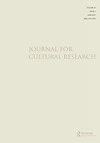新冠肺炎与“完美治理城市”
IF 0.6
Q1 CULTURAL STUDIES
引用次数: 1
摘要
摘要在本文中,我借鉴福柯“完美治理城市”的理论模型(1977年,第198页),对新冠肺炎治理所规定的新应急协议下某些文化和地理区域的产生提出质疑。我认为,在2020年的前几个月,在新冠肺炎疫情应对的背景下,国家指令迅速融入家庭(两人规则)和身体(保持社交距离),为国家边界交叉的新标准树立了先例,文化研究学者应持偏见地对其进行监测。利用Berger和Luckman,我指出国家通过重复使用习惯化,可以在以后用于监测和控制公民,但目的不同。这篇文章的目的是表明,即使在对公共健康的威胁已经消退之后,这些措施也代表了潜在的新冠肺炎式治理的条件。特别是,它的潜力在于训练或训练身体(特别是通过保持社交距离的做法)、常规化和习惯化,以及日常生活中身体监控的正常化。本文章由计算机程序翻译,如有差异,请以英文原文为准。
COVID-19 and the ‘Perfectly Governed City’
ABSTRACT In this article, I question the production of certain cultural and geographic zones under the new emergency protocols mandated through COVID-19 governance, by drawing upon the theoretical model of Foucault’s ‘perfectly governed city’ (1977, p. 198). I argue that in the first few months of 2020, in the context of the COVID-19 pandemic response, the rapid absorption of state directives into the home (two-person rule) and the body (social distancing) set a precedent for a new standard of state boundary-crossing that should be monitored by cultural studies academics with prejudice. Using Berger and Luckman, I point to the State’s use of habitualisation through repetition that can be used to monitor and control citizenry at a later time but for different purposes. The purpose of this article is to show that these measures represent a condition of potential COVID-style governance, even after the threat to public health has subsided. In particular, its potentiality lies in the effects of disciplining or training the body (particularly through social distancing practices), routinisation and habitualisation, and the normalisation of bodily surveillance in everyday life.
求助全文
通过发布文献求助,成功后即可免费获取论文全文。
去求助
来源期刊

Journal for Cultural Research
CULTURAL STUDIES-
CiteScore
1.40
自引率
0.00%
发文量
23
期刊介绍:
JouJournal for Cultural Research is an international journal, based in Lancaster University"s Institute for Cultural Research. It is interested in essays concerned with the conjuncture between culture and the many domains and practices in relation to which it is usually defined, including, for example, media, politics, technology, economics, society, art and the sacred. Culture is no longer, if it ever was, singular. It denotes a shifting multiplicity of signifying practices and value systems that provide a potentially infinite resource of academic critique, investigation and ethnographic or market research into cultural difference, cultural autonomy, cultural emancipation and the cultural aspects of power.
 求助内容:
求助内容: 应助结果提醒方式:
应助结果提醒方式:


